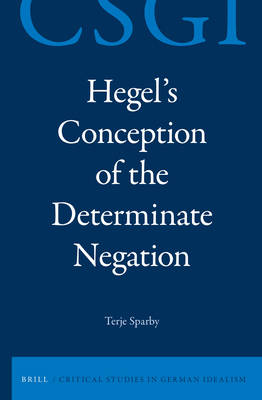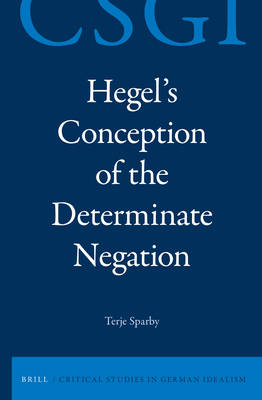
- Afhalen na 1 uur in een winkel met voorraad
- Gratis thuislevering in België vanaf € 30
- Ruim aanbod met 7 miljoen producten
- Afhalen na 1 uur in een winkel met voorraad
- Gratis thuislevering in België vanaf € 30
- Ruim aanbod met 7 miljoen producten
Zoeken
Omschrijving
"The determinate negation" has by Robert Brandom been called Hegel's most fundamental conceptual tool. In this book, Terje Sparby agrees about the importance of the term, but rejects Brandom's interpretation of it. Hegel's actual use of the term may at first seem to be inconsistent, something that is reflected in the scholarship. However, on closer inspection, three forms of determinate negations can be discerned in Hegel's texts: A nothing that is something, a moment of transformation through loss (like the Phoenix rising from the ashes), and a unity of opposites. Through an in-depth interpretation of Hegel's work, a comprehensive account of the determinate negation is developed in which these philosophically challenging ideas are seen as parts of one overarching process.
Specificaties
Betrokkenen
- Auteur(s):
- Uitgeverij:
Inhoud
- Aantal bladzijden:
- 360
- Taal:
- Engels
- Reeks:
- Reeksnummer:
- nr. 12
Eigenschappen
- Productcode (EAN):
- 9789004284609
- Verschijningsdatum:
- 8/12/2014
- Uitvoering:
- Hardcover
- Formaat:
- Genaaid
- Afmetingen:
- 160 mm x 239 mm
- Gewicht:
- 680 g

Alleen bij Standaard Boekhandel
+ 592 punten op je klantenkaart van Standaard Boekhandel
Beoordelingen
We publiceren alleen reviews die voldoen aan de voorwaarden voor reviews. Bekijk onze voorwaarden voor reviews.








